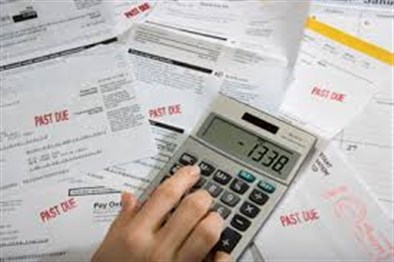source: www.dailystar.com.lb
Lebanon’s public debt swelled by nearly $5 billion during the term of former premier Najib Mikati’s Cabinet, the secretary-general of the Association of Banks in Lebanon said. “Based on the statistics provided by the Finance Ministry, the public debt rose by $5 billion, 60 percent of which is foreign currency,” Makram Sader told The Daily Star.
He added that total debt up to April stood at $59.1 billion.
Mikati formed his Cabinet in June 2011 and resigned in March 2013, paving the way for the appointment of Tammam Salam as the prime minister-designate for Lebanon.
Sader was reacting to Moody’s latest report which revises its outlook for Lebanon from stable to negative.
The ratings agency also downgraded the three leadings banks in the country due to their wide exposure to public debt and the government’s failure to implement reforms.
“Moody’s revised outlook of Lebanon’s sovereign debt has caused some surprise,” Sader said in an article published by the Association of Banks.
“But the reality is that it is an indication that the country is going in the wrong direction. The country has poor GDP growth (1.5 percent) and relatively high inflation (6.5 percent). It is a new warning from a neutral and credible institution.”
Sader blamed the rise of the debt on a number of factors, including the failure of Parliament to pass a number of important laws over the last four years.
“Furthermore, the Parliament did not approve a single budget over the past four years although the endorsement of budgets, imposing of taxes and allocating new funds is part of the work of the Parliament,” he said.
Lebanon has been plagued by numerous political and economic problems that further exacerbated the situation in the country.
The spillover of the long running war in Syria and the failure to form a Cabinet or produce a new election law has also caused the GDP to decline to 2 percent and less.
Sader said that with God’s help and the Lebanese banks, the cost of borrowing had fallen in Lebanon’s history and thus did not contribute to a rise in the cost of debt servicing.
He pointed to reported tax evasion and Customs evasion, which contributed to the low government revenues.
“There is lot of reasons for the surge of the debt. The high cost of maintaining Electricite du Liban is one of the major reasons,” Sader said.
The government has allocated more than $2 billion to EDL in 2012 to cover the rising cost of fuel oil which runs the country’s power plants.
In the first three months of this year, the budget deficit surged by LL171 billion to reach LL1.181 trillion, or 26.02 percent, compared to LL1.009 trillion, or 22.26 percent, in the same period of last year.
This rise in budget deficit caused the primary surplus, excluding the cost of debt servicing, to drop by 0.16 percent to LL267 billion. The primary surplus in the first three months of 2012 stood at LL274 billion.
Economists fear public debt may rise to more than $62 billion at the end of 2013 if revenue declines and spending grows beyond control.
image: www.money.howstuffworks.com














